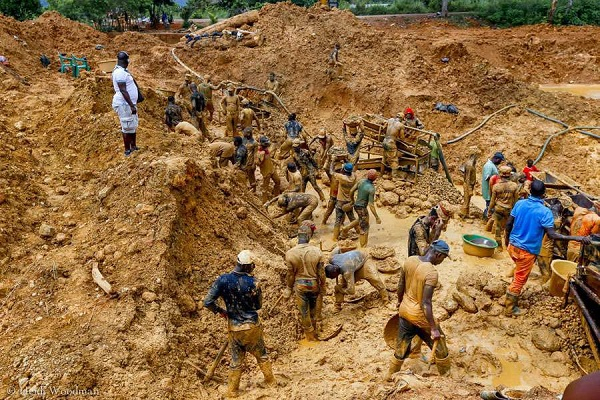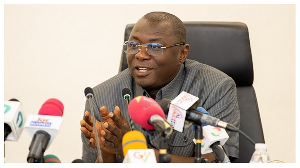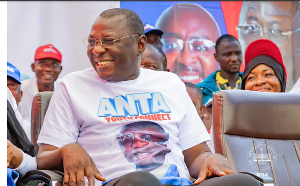Introduction
The issue of galamsey, or illegal mining, has long plagued Ghana, causing significant environmental damage and sparking public outcry. Recently, the Minority in Parliament has hinted at plans to hold the government accountable for its failure to effectively tackle this problem. This move could have major implications for the future of mining regulations in the country.
The Current State of Galamsey in Ghana
Illegal mining activities continue to wreak havoc on Ghana’s environment, leading to deforestation, water pollution, and soil degradation. The public has been vocal in their protests against galamsey, demanding urgent action to protect the environment and ensure sustainable mining practices. The widespread environmental impact underscores the critical need for effective regulation and enforcement.
Ebenezer Okletey Terlabi’s Stance on Galamsey
Ebenezer Okletey Terlabi, a prominent member of the Minority in Parliament, has been vocal about the need for legislative action to address galamsey. He plans to bring this issue to the forefront in Parliament, emphasizing the importance of holding the government accountable for its inaction. Terlabi’s criticism highlights the urgency of implementing effective measures to combat illegal mining and protect the environment.
Delays in Environmental Protection Legislation
The Environmental Protection Bill, which aims to regulate illegal mining activities, has faced significant delays in Parliament. These delays are often attributed to the influence of certain ministers and other legislative challenges. The bill’s passage is crucial for empowering the Environmental Protection Agency (EPA) to enforce regulations and curb illegal mining practices effectively.
The Role of the Environmental Protection Agency (EPA)
Currently, the EPA’s capabilities in regulating illegal mining are limited. The proposed Environmental Protection Bill would enhance the agency’s regulatory powers, allowing for more stringent oversight and enforcement. Strengthening the EPA’s role is essential for addressing the environmental damage caused by galamsey and ensuring compliance with mining regulations.
Implications for Future Mining Practices and Community Involvement
If Terlabi’s efforts succeed, there could be significant changes to mining regulations in Ghana. Emphasizing sustainable practices and stricter enforcement could help mitigate the environmental impact of mining activities. Additionally, the engagement of civil society organizations and community activism will be crucial in advocating against galamsey and promoting responsible resource management.
Conclusion: A Call to Action for Stakeholders and a Vision for a Sustainable Future
The fight against illegal mining in Ghana requires collective action from all stakeholders, including the government, Parliament, civil society, and local communities. Ensuring accountability in governance and implementing effective regulations are vital for protecting the environment and promoting sustainable mining practices. By working together, Ghana can move towards a future where natural resources are managed responsibly, and the environment is safeguarded for future generations.
Source: myjoyonline.com , ghanaweb.com






